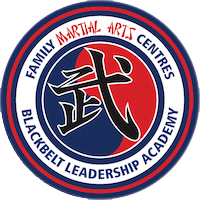In today’s fast-paced, technology-driven world, many parents are seeking ways to help their children improve their focus and concentration. Martial arts, with its rich history and disciplined approach, offers a unique solution. Engaging in martial arts can be highly beneficial for a child’s mental development, particularly in enhancing concentration. Let’s explore several ways martial arts training can contribute to this essential skill.
Discipline
Martial arts are rooted in discipline. From the moment a child steps into the dojang, they are introduced to a world where structure and order are paramount. They learn to follow instructions meticulously, adhere to rules, and maintain a consistent practice routine. This environment naturally cultivates self-control and concentration. When children understand the importance of discipline in martial arts, they begin to apply these principles in other areas of their lives, such as their studies and daily activities.
Repetition and Practice
A significant aspect of martial arts training involves the repetition of movements and techniques. Whether it’s practising a punch, a kick, or a form, repetition is key. This repeated practice requires sustained concentration. As children focus on perfecting their techniques, they inherently enhance their ability to concentrate for extended periods. Over time, this improved focus becomes a part of their overall mental framework, benefiting their academic and personal lives.
Mind-Body Connection
One of the core principles of martial arts is the connection between the mind and body. Children are taught to be acutely aware of their body’s movements, positioning, and coordination. This mindfulness promotes a deeper level of concentration, as they must constantly focus on how their body responds to various techniques. By integrating this mind-body connection, children develop a heightened sense of awareness and focus, which can be incredibly beneficial in all aspects of their lives.
Goal Setting
Martial arts often involve a structured system of belts or levels that signify a practitioner’s progress and skill level. Setting and achieving these goals can be highly motivating for children. The desire to move up to the next belt rank encourages them to stay focused on their training and work diligently towards their objectives. This goal-oriented approach not only improves concentration but also instils a sense of achievement and perseverance.
Breathing and Relaxation Techniques
Many martial arts styles incorporate specific breathing and relaxation techniques. These practices teach children how to manage stress, remain calm, and maintain focus. Controlled breathing helps in clearing the mind and enhancing concentration, especially in challenging situations. By learning to control their breath and relax their minds, children can improve their ability to concentrate on tasks both inside and outside the dojang.
Awareness of Surroundings
Martial arts training often includes exercises that promote heightened awareness of one’s surroundings. This situational awareness is crucial in martial arts for self-defence and effective training. The practice of being constantly aware of the environment translates into improved focus in everyday life. Children learn to pay attention to details and stay alert, enhancing their concentration in various settings, from the classroom to social interactions.
Mental Toughness
Martial arts training can cultivate significant mental toughness and resilience. Children are taught to push through challenges, setbacks, and physical discomfort. This mental fortitude is crucial for maintaining concentration under pressure. When children face difficult situations in their training and learn to overcome them, they build the resilience needed to stay focused and determined in other areas of life.
Social Interaction
Martial arts classes provide a structured environment for social interaction. Interacting with peers and instructors requires children to listen carefully, follow instructions, and work collaboratively. This social aspect of martial arts helps enhance a child’s ability to concentrate and focus in group settings. Learning to work with others and understanding social cues can significantly improve a child’s concentration and overall social skills.
Conclusion
The effectiveness of martial arts in improving focus and concentration can vary from individual to individual, and the quality of instruction and the specific martial art style can influence the outcomes. However, when taught in a positive and supportive environment, martial arts can contribute significantly to a child’s overall development. The discipline, repetition, mind-body connection, goal setting, breathing techniques, awareness, mental toughness, and social interaction all play crucial roles in enhancing a child’s concentration.
By engaging in martial arts, children not only learn self-defence and physical skills but also develop essential mental attributes that will benefit them throughout their lives. For parents seeking ways to help their children improve focus and concentration, martial arts offer a compelling and holistic approach.

